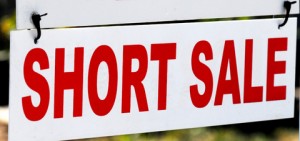Are Short Sales Still Good Deals?
Short sales have received much stigma as of late, and more buyers have been steering clear of them. But for those who are willing to wait them out, can short sales still save you money? In order to answer to this question it is important to dissect the short sale and look at it’s components and ramifications.
Timing: The old school of thought was that if a buyer was not in a hurry, a short sale could be a good investment – the price would be set, usually lower than other non-short sales in the area, and all the buyer had to do was await the lender approval. The problem has always been that awaiting the approval can take a long time – from several months to even (in some extreme cases) closer to a year. With the market changes and price increases, coupled with lower inventory levels in most areas, the waiting game can backfire for buyers. During that period it is possible prices will increase, making it possible that the short sale lender will counter the contract price. Mortgage rates may also go up during that time, making monthly payments higher for the buyers. Timing is thus a big consideration when purchasing a short sale, and has to be considered in light of the specific market, the availability of similar inventory that is not short, and price.
 Price: It used to be that if one was willing to hold out for short sale lender approval, one could get a good deal on a home purchase. Most short sale lenders have a magic scale (feel the sarcasm here – I say “magic” because no one knows how these scales are formulated) – generally each lender has had a price range in which they will approve a contracted price, and it seems these ranges used to dip lower than they do at present.
Price: It used to be that if one was willing to hold out for short sale lender approval, one could get a good deal on a home purchase. Most short sale lenders have a magic scale (feel the sarcasm here – I say “magic” because no one knows how these scales are formulated) – generally each lender has had a price range in which they will approve a contracted price, and it seems these ranges used to dip lower than they do at present.
When a short sale offer is submitted to a lender today, not only does one have to contend with the waiting game, but one also has to be aware that the lender or lenders may counter the contracted price. Some lenders have been countering prices at above comparable market value, since they are aware prices are rising in most areas; thus many lenders don’t seem to be content any longer to approve lower prices. The problem is in the timing – by the time the lender does its appraisal or BPO it can be months since the contract was accepted – thus the buyer may have to pay more to close AND has now missed out on other opportunities while waiting.
Missed Opportunities: In these times where we are seeing market prices escalate, waiting out a short sale could potentially mean a buyer is missing out on other home sales that will be priced higher down the road; in other words, if you make an offer on a short sale home now by the time it is actually approved you may have been able to purchase another, non-short sale home for a lower price. It is a risk each buyer has to consider, and of course depends on their attachment to the home they are waiting on.
Higher mortgage rates: Mortgage rates have increased and are expected to do so further with time. The short sale home you made an offer on months ago may have been affordable at that time, but months down the road your monthly mortgage payments may be higher than anticipated if rates went up during your waiting period. This has happened to clients of mine who have been waiting out a short sale, and it is something to consider when deciding to write that short sale offer.
All in all, a short sale can still be a “good deal,” but there are definitely factors to consider before jumping into waiting one out. Consult with your real estate agent and weigh all the factors – timing, price, other inventory, the possibility of increased mortgage rates effecting your monthly bottom line, and the status of the local market. It may still be worth it for some people, but for others short sales may not really be good deals after all.



